
These deliciously pillowy little dumplings are found all over Italy in a variety of forms – the pasta-like Sardinian malloreddus, the semolina-based gnocchi alla romana and the ricotta clouds of Tuscan gnudi, to name but a few – but it’s the fluffy potato version of the north that has achieved the greatest fame abroad, and they’re surprisingly simple to make.
Prep 5 min
Cook 1 hr 40 min
Serves 6
1kg large desiree potatoes, or other medium-sized potatoes, all roughly the same size
350g plain flour
½ tsp fine salt
1 pinch nutmeg (optional)
2 small eggs, beaten
1 Waxy or floury?
Though better chefs than me favour a floury potato for their gnocchi, I always get the best results from a potato with a medium starch content, such as desiree or maris piper. Heat the oven to 200C (180C fan)/390F/gas 6. Meanwhile, wash the potatoes, dry them well and prick each one a few times, so they don’t explode in the oven.
2 Bake the potatoes
Ideally, the potatoes should be elevated above the baking tray so they don’t develop too hard a skin; if possible, put them on a rack or cover the base of the tray with rock salt. Bake for about an hour, until completely cooked through: the timing will depend on the size of the potatoes, so check them regularly towards the end.
3 Peel the potatoes
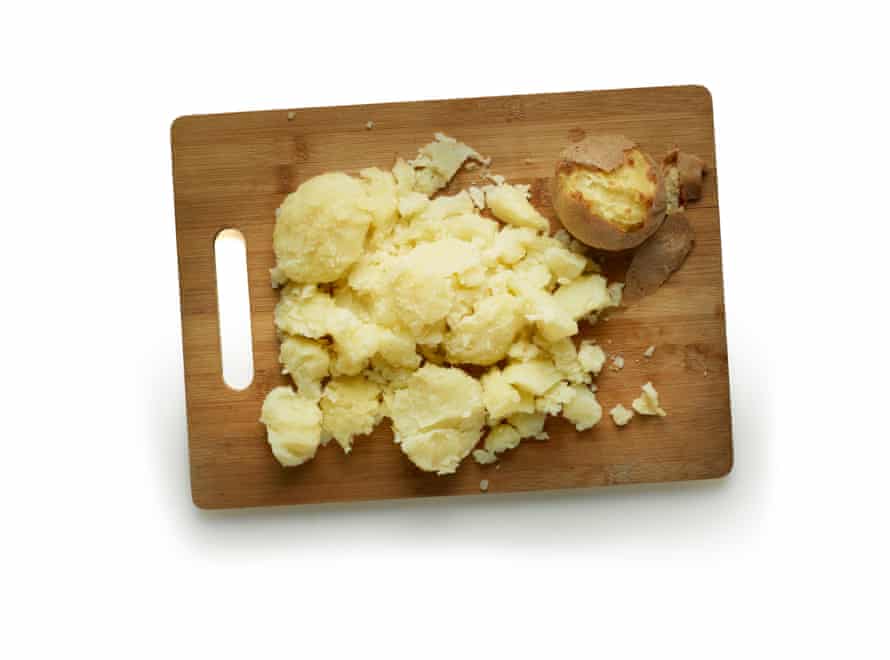
As soon as they’re cool enough to handle, peel off the skins and discard them: though I’m not counselling burning yourself in the service of supper, the more you let the potatoes cool before making the gnocchi, the chewier the finished results will be, so it pays to get in there as soon as it’s safe to do so.
4 Rice the potatoes on to flour
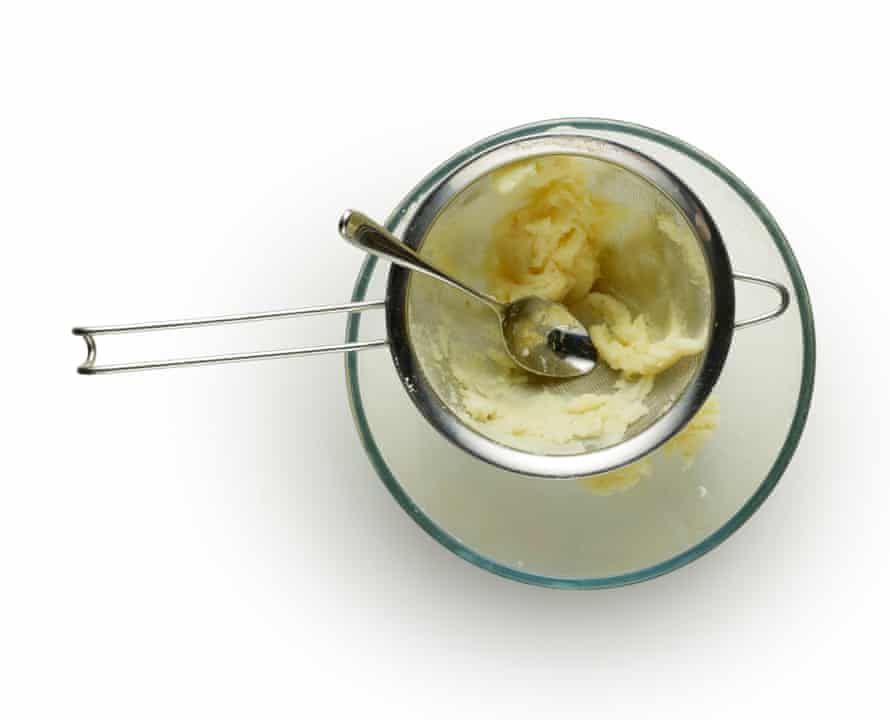
Whisk 250g of the flour with a half-teaspoon of fine salt and a pinch of nutmeg, if using. Tip on to a clean surface. Working from roughly elbow height, push the potatoes through a ricer (or a fine sieve) on to the flour. Make a well in the middle.
5 Add the eggs, then mix
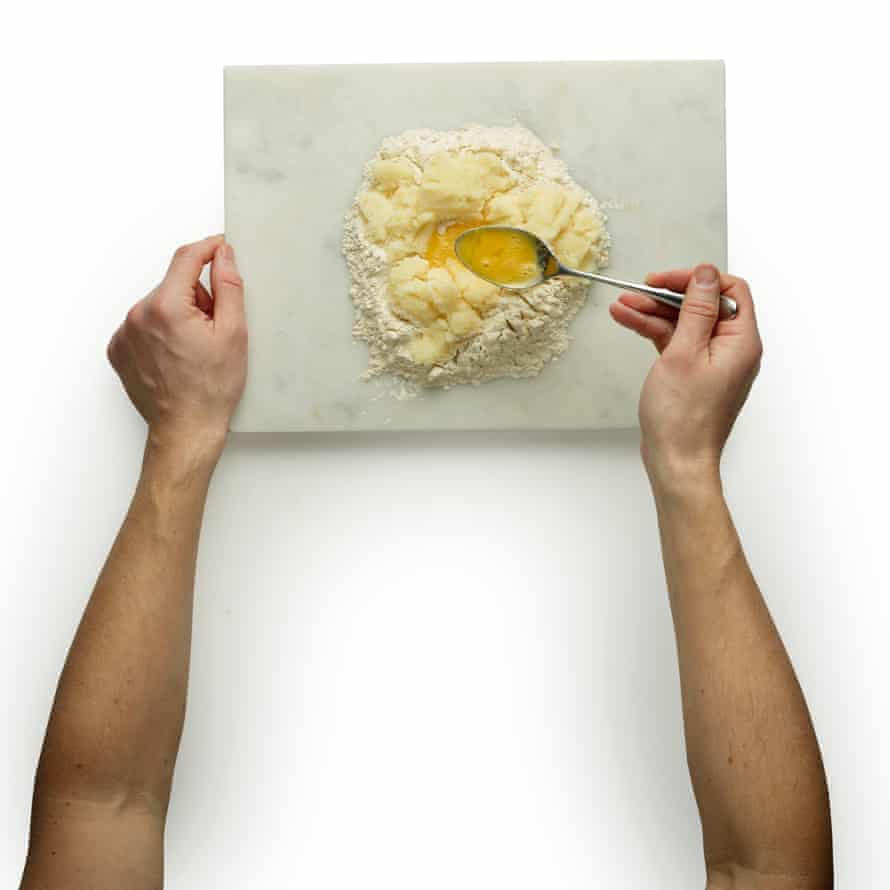
Pour the beaten eggs into the well, then mix everything with your hands until it comes together into a soft dough; add more flour, if necessary, but stop mixing the moment it comes together; again, too much flour will make your gnocchi tough.
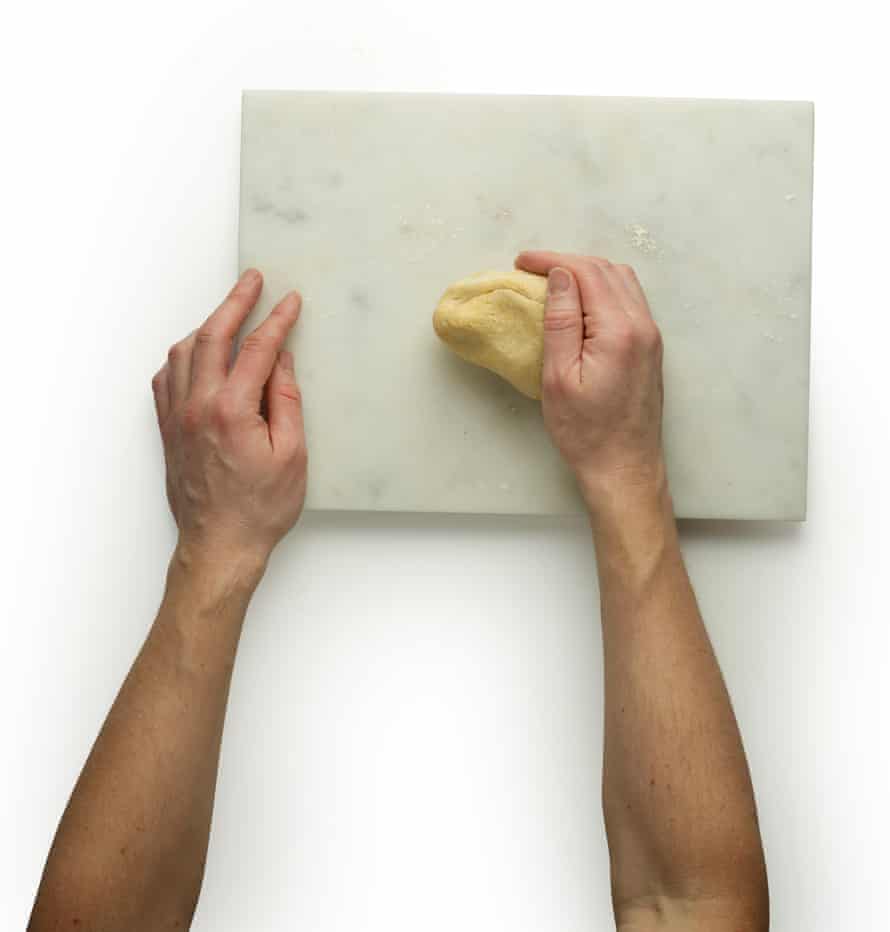
Gather up the dough and set aside while you clean the work surface and dust it with a little more flour.
6 Flatten the dough, then cut
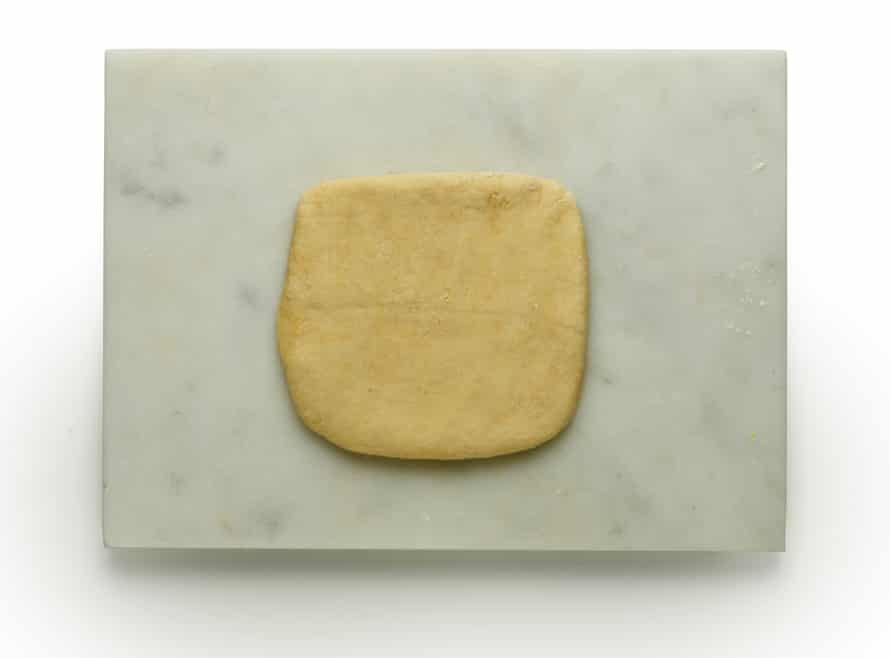
Put the dough back in the centre of the work surface and flatten it into a roughly 1½cm-thick square.
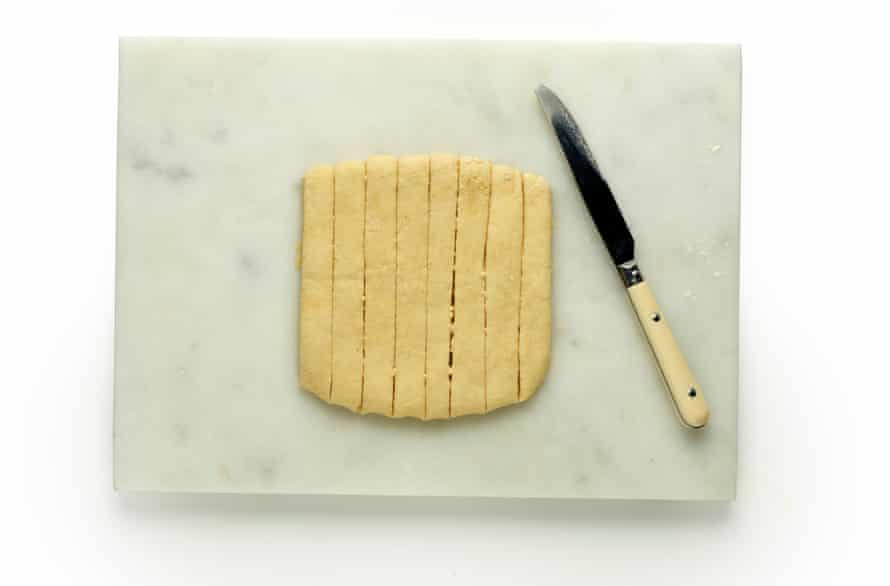
Cut this into 1½cm-wide strips, then, working one at a time, roll the strips into long sausages.
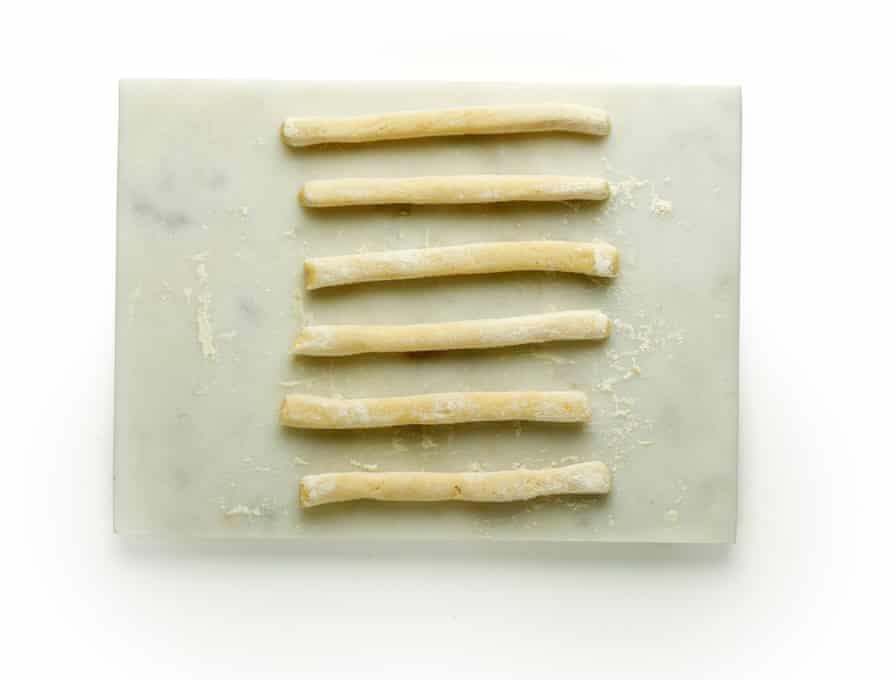
Line up all the sausages together, then cut them all into 1cm-wide segments.
7 Shape the gnocchi
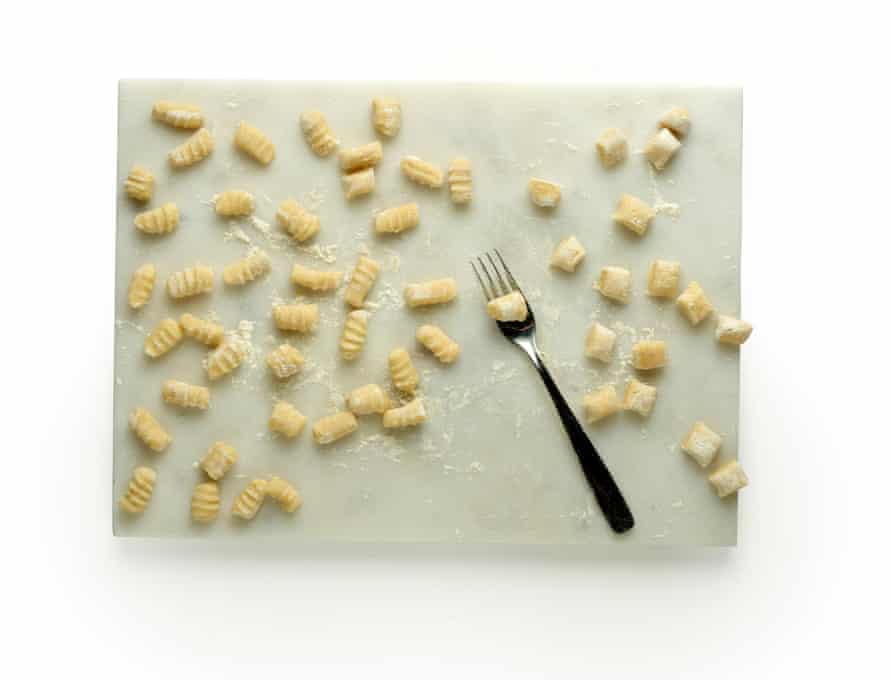
Dust the gnocchi lightly with flour, then roll each one over the back of a fork, pressing your thumb into the dough as you do so, so it gets grooves on one side and a little indentation on the other (videos online may help). You can at this point put them on a floured tray, cover and refrigerate until ready to use.
8 Cook the gnocchi
Bring a large pan of salted water to a boil, then turn down to a simmer and tip in half the gnocchi. Stir, then wait for them to rise to the surface. Count slowly to 10, then remove with a slotted spoon and keep warm while you cook the rest. Toss with your chosen sauce and serve.
9 Serving suggestions
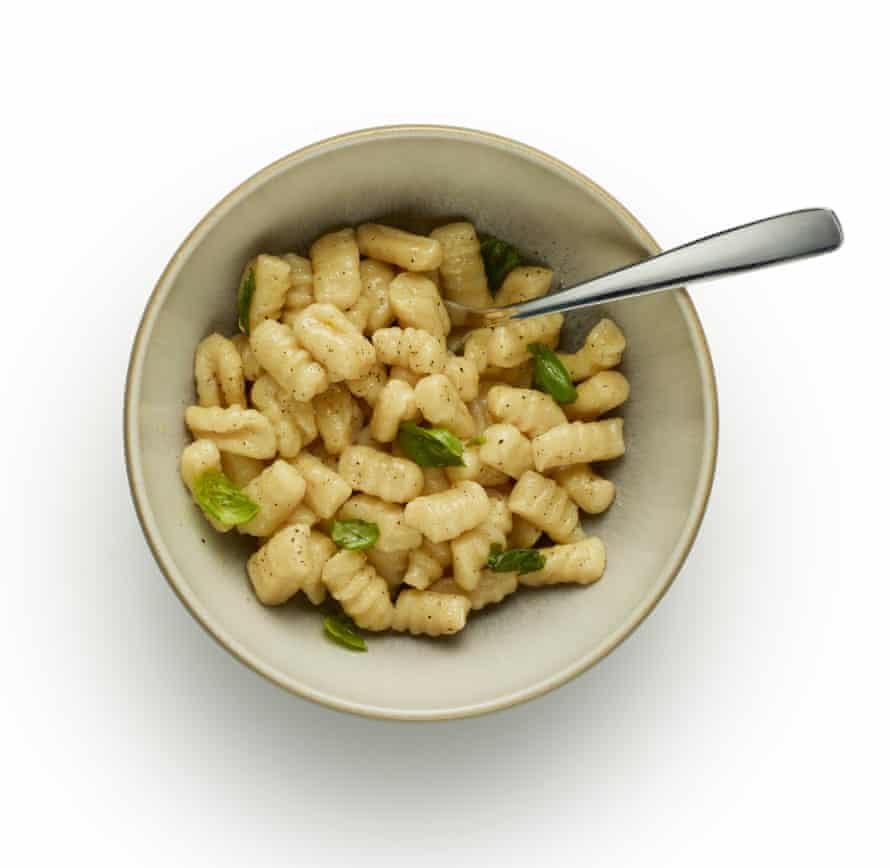
Gnocchi are great with a meaty ragu, or a tomato sauce, but my favourite way to eat them is with butter and sage. Melt 200g butter in a wide pan over a medium heat. Once it foams, add a small handful of fresh sage leaves, season and continue cooking until the butter is brown and nutty. Take off the heat, toss with the gnocchi and serve hot.
As a reader of the Guardian’s food journalism, we’d love to hear from you. Participate in our survey for a chance to win a Feast apron and mug, or a Guardian tote bag. Take the survey here.



